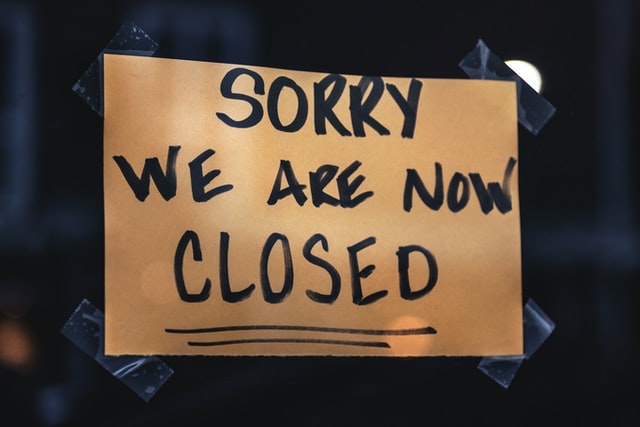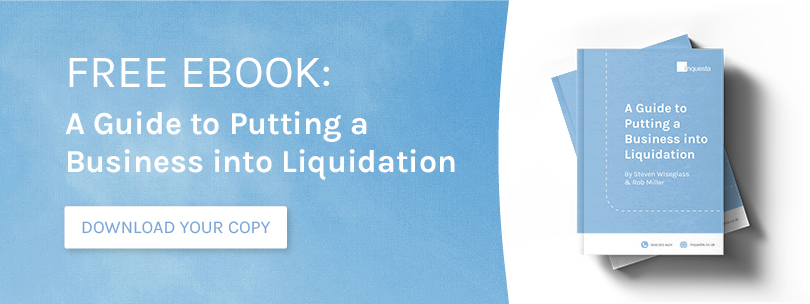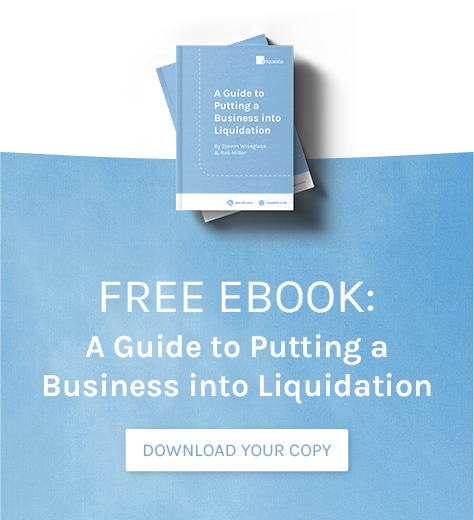If your company becomes insolvent and cannot carry on, it is essential that you are fully aware of all your responsibilities – especially those towards your staff. While nobody wants their business to fail, if you have no other option but to call time on your operations then you need to understand exactly what is expected of you and how your employees should be treated.
No matter your situation, your first port of call should be an expert advisory firm and licensed insolvency practitioner, as they will be able to guide you through the entire process and ensure that everything is being taken care of.
What Happens to Employees when a Company goes into Liquidation
What happens to employees when a company goes into liquidation can differ slightly depending on the type of closure the business went through. While the general rule of thumb is that your workers’ contracts will be terminated as soon as your business enters the liquidation process, their services may still be needed if the firm continues to trade temporarily to maximise the benefit of liquidation sales – with their salaries being paid by the liquidator.
Compulsory Winding Up
If your company is forced to close due to pressure from creditors and your inability to pay your debts, your employees’ contracts will be terminated immediately. Because losing their job was down to no fault of their own, this could amount to unfair dismissal and the award of damages to your workers.
Waiting for your creditors to force your hand into closing your company can also have an adverse effect on your employees’ ability to claim redundancy – so you should thoroughly weigh up your options to decide whether it is best to voluntarily close your operations. While doing so of your own volition leaves you in control of the process, waiting for your company to be closed as a result of creditor pressure could take months to resolve, thereby leaving your workers in relative limbo.

Voluntary Winding Up
One of the main advantages of a voluntary liquidation over waiting for a compulsory winding up order is the timescales involved. Because employees can only begin their claims for redundancy and other entitlements once the business has been formally placed in liquidation, directors are often keen to make the process as fast as possible to avoid any potential delay.
Just like with compulsory winding up, your employees may be able to make a claim for wrongful dismissal since it was not their actions that caused your company to close. For that reason, seeking the advice of a licensed insolvency practitioner early is essential to formulating a strategy that mitigates the risk of litigation from your employees.
Redundancy Claims
Once your company has been wound up, your employees will legally be able to make a claim for any of the following:
- Redundancy pay
- Payment in lieu of notice period
- Pro-rata holiday pay
- Unpaid wages
- Pension contribution
These payments are subject to certain limits, however, which are:
- Up to eight weeks’ pay for unpaid wages
- Between one to 12 weeks’ salary for statutory notice pay (depending on tenure)
- Remaining holiday entitlement that has accrued but not been taken in the last 12 months
- Statutory redundancy pay that depends on your employees’ length of service

Compensation for these types of claims are dealt with via the Redundancy Payment Service, which means that your company will not be held liable. This means that your workers will be far more successful in receiving funds than if they were to launch a claim against your business – especially in the case of an insolvent liquidation.
Unfair Dismissal
In certain circumstances, your employees may be entitled to claim for wrongful dismissal – but only if they can prove that:
- They were not given adequate notice before they were dismissed
- Their dismissal constituted a breach of contract
- They have suffered a loss as a result of their dismissal
Even if their claim is honoured, any amount that is awarded to them will be classed as an unsecured debt – meaning they will rank quite low on the hierarchy of creditors. In fact, many successful unfair dismissal claims will not actually result in a payout due to the company running out of funds to satisfy their creditors.
Redundancy for Directors
As with any other staff member, you may also be eligible for redundancy payments after you close your company. This is provided you have been an employee of the business, working there for a period of two years or more, have completed at least 16 hours of work per week and have been taking home a monthly wage.
Despite the fact that eligibility requirements exist, it is highly likely that you will be accepted, so this is something that should be considered. These payouts can be especially useful when you are having to self-fund your company’s liquidation – so be sure to consult with your insolvency practitioner as soon as possible.
Administrations and CVAs
While the main crux of this article is about what happens to employees when a company goes into liquidation, it is also important to outline the impact on workers if the business calls in the administrators or enters into a Compulsory Voluntary Agreement (CVA).
Administration
When a business falls into administration, there is a possibility that it can trade as normal while its future is being considered by a licensed insolvency practitioner. Once the advisor has been appointed, they will automatically gain control of the company and adopt any employee contracts after a period of 14 days. This means your workers would be ranked as preferential creditors for holiday pay, unpaid wages and notice pay if the firm subsequently goes into liquidation.
The reason for this is because administration can be seen as a ‘holding stage’ while the future of the company is being decided. Once the administration period has ended, its workforce will either remain employed, be transferred to a new owner or be made redundant.

CVA
A CVA is essentially a formal payment plan that is negotiated between a company and its creditors, allowing the firm to continue trading and use future profits to pay back its debts. Since the main aim of a CVA is to keep the company running, its employees on the whole may find that their positions remain unaffected.
That being said, it is important to remember that a CVA is an opportunity for the company to reduce its outgoings as much as possible. For some businesses, this may result in a spate of redundancies. These must always be carried out in accordance with the relative legislation.
How Inquesta can Help
If you are considering the future of your business, it is essential that you get the right advice as soon as possible. Inquesta has amassed decades of experience in helping companies from all areas of industry assess their options and recommend the best possible solution for their circumstances.
We will gain a thorough understanding of your company and provide you with a range of options that we believe are in your best interest. We also provide expert advice and support throughout the entire process so you can be totally confident that everything is being taken care of.
For more information about how we can help you, contact our team or book a free consultation today.




